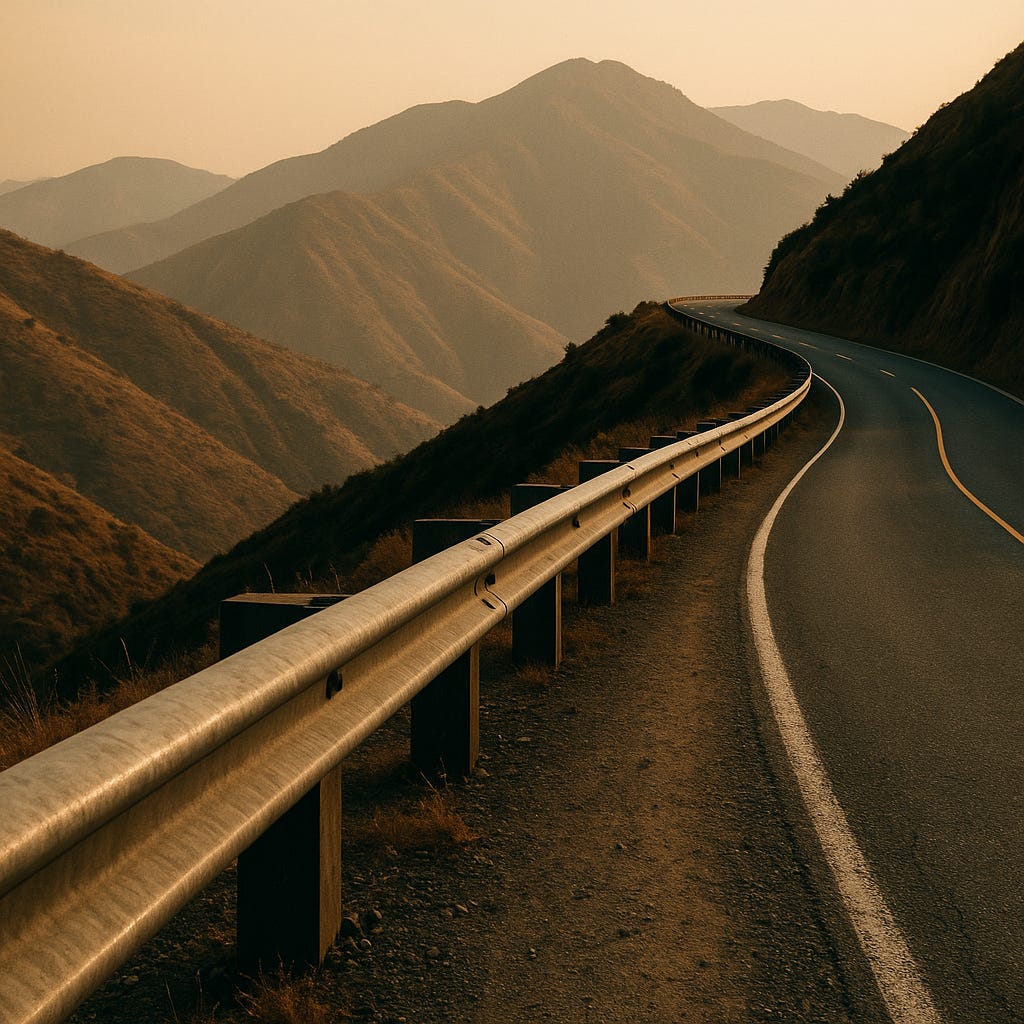Shame: The Forgotten Guardrail
With it, we are stronger. Without it, we disintegrate.
Shame: The Forgotten Guardrail
By Jim Reynolds | www.reynolds.com
We live in an age where almost nothing is shameful. Politicians lie without consequence, celebrities flaunt corruption as if it were fashion, criminals loot stores in broad daylight while cameras roll — and the crowd just shrugs.
This isn’t normal. It isn’t sustainable. Shame and ridicule, harsh as they can be, are the guardrails that keep civilizations from veering into the ditch. Without them, no law, no budget, no bureaucracy can hold the line.
Shame as Civilization’s Brake
For thousands of years, every culture — whether Christian, Jewish, Muslim, Buddhist, or Hindu — recognized shame as a moral boundary. Shame wasn’t cruelty; it was clarity. It told people: that behavior will destroy you, and it will destroy us if we let it spread.
The Bible, the Qur’an, the Dhammapada, the Vedas — all warn against shamelessness. They understood a truth that doesn’t age: when people lose the ability to blush, society loses the ability to govern itself.
A Culture Without Blush
Look around: we are now a shameless culture. Fraud is rebranded as “innovation.” Theft is excused as “equity.” Lies are packaged as “narratives.” The collapse is visible in every arena:
Politics: deceit is strategy, not scandal.
Academia: fakery is published, retracted, and forgotten.
Media: propaganda is disguised as storytelling.
Streets: mobs loot, then laugh about it on TikTok.
And underneath it all runs materialism — the hollow religion of our time. When shame disappears, greed fills the vacuum. If there is no right or wrong, the only measure left is what you can grab. We worship celebrity excess, excuse corruption if it lines pockets, and rationalize looting as entitlement. Materialism without morality isn’t prosperity. It’s rot wearing jewelry.
And yet, even in a culture addicted to excess, a few voices refused to be quiet. They pointed out the obvious, even when it cost them — that truth still exists, that decency still matters, that shame is not cruelty but protection. Among them was Charlie Kirk.
Kirk as Hammer and Compass
In the middle of this decline, he became a hammer. He wasn’t a preacher. He didn’t stand at a pulpit with liturgy. What he did was harder: he spoke plain truths in a culture allergic to them.
His core message was simple: do the right thing. Yes, he had a religious grounding, but his real power came from clarity — reminding young people that freedom without discipline is decay, that conscience still matters, that shame is not cruelty but protection.
Kirk guided thousands toward a better way forward, not by sermon, but by conscience. He told them the truth: right and wrong still exist, and pretending otherwise leads only to ruin.
That’s why he was dangerous. Not because he carried a weapon, but because he carried moral fiber into a society intent on burning it.
A Shameless Death
The act that took his life was not only violent — it was shameless. A defenseless man, in the open, cut down by those who felt no restraint, no fear of ridicule, no moral compass. It was an immoral, brazen act carried out in daylight, the easiest of targets.
That’s the indictment. The society that mocked his warnings became the proof of his warnings. When shame collapses, when immorality is celebrated, the easiest targets are those who dare to say “enough.”
His killing was not only a crime against one man; it was a mirror held up to us. We no longer know how to blush.
The Ultimate Shamelessness
As if the act itself weren’t enough, the aftermath has been worse. Some people — so blinded by hate — are mocking Charlie’s death. They invent words he never said, spread lies he never lived, and laugh as though slander is entertainment.
That is the final sign of collapse. In any decent society, death draws at least a moment of respect, even for opponents. But in a culture without shame, even the grave isn’t safe. When the dead can be mocked without consequence, the living have no protection left.
The ridicule aimed at Charlie isn’t just cruelty. It is the ultimate confession: these people cannot defend their own ideas, so they desecrate the man who exposed them. Their shamelessness is the proof of his truth.
Where We Stand
We at least need to recognize how far we have fallen. A culture that once held people accountable through shame now rewards shamelessness. We have lost our way, and the price is no longer abstract — it is measured in lives, in corruption, in the collapse of trust itself.
But as Charlie would have said: it is never too late. Never too late to recover the guardrails. Never too late to reclaim decency. Never too late to teach the next generation that doing the right thing still matters.
His life was proof that one voice can guide thousands toward a steadier path. His death is proof of what happens when a society abandons its conscience.
The Call
The choice before us is stark. We can continue down the road of shamelessness, where nothing is sacred and no one is safe. Or we can rebuild the moral fiber we have squandered — quietly, firmly, together.
The shame is not in admitting we’ve fallen. The shame would be in refusing to stand back up.




Doug, some will say that they lost all shame during the Clinton/Lewinsky debacle. I thought Bill would never recover. But he did, at least for some of our population.
Cheers, Jim
You nailed it! Amen and Amen!